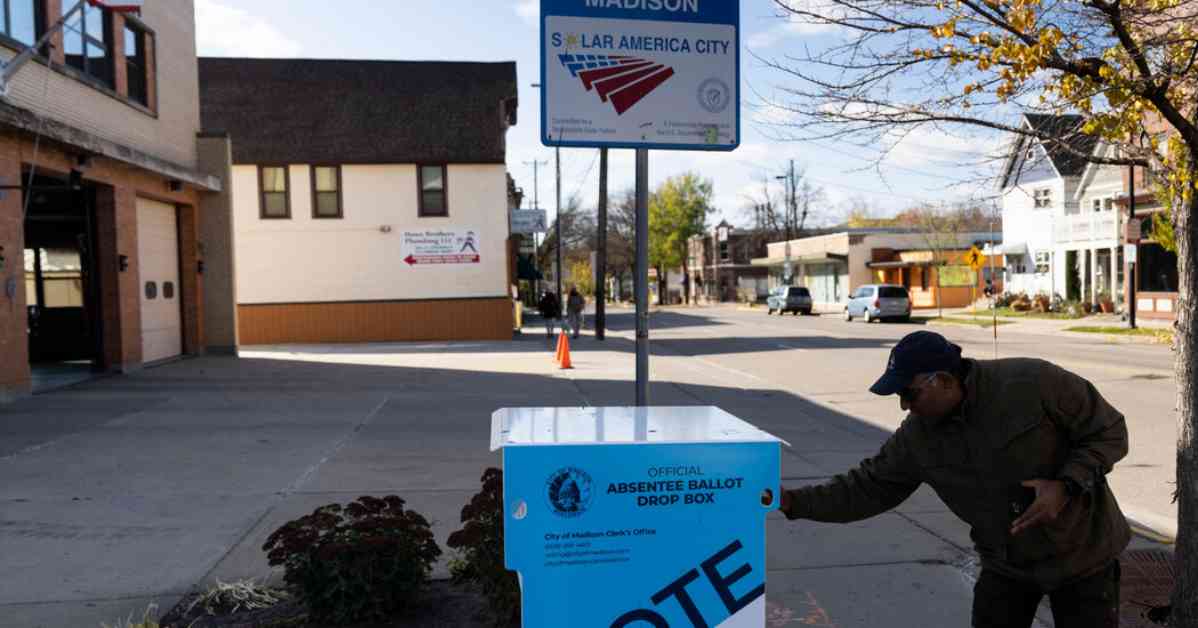The Wisconsin Supreme Court recently made a significant decision regarding the use of ballot drop boxes in the state. The court’s liberal majority ruled that drop boxes can be used widely once again, overturning a previous ruling made by conservative jurists two years ago. This decision comes just four months before the upcoming November election and has the potential to impact how the election is conducted in a closely divided state like Wisconsin.
In the past, drop boxes were utilized in Wisconsin as a convenient way for voters to submit their ballots before Election Day, alongside early in-person and mail-in voting options. However, the widespread use of drop boxes in the 2020 election, particularly during the Covid-19 pandemic, led to controversy and legal challenges from Republicans. The previous conservative majority on the court had largely banned the use of drop boxes, but the new liberal majority has now reversed this decision.
Justice Ann Walsh Bradley, representing the liberal majority, emphasized that the ruling does not mandate the use of drop boxes by municipal clerks but instead recognizes their lawful discretion to implement secure drop boxes. On the other hand, Justice Rebecca Bradley, a conservative, dissented from the majority opinion, accusing them of prioritizing political motives over upholding the rule of law.
This ruling is part of a broader trend where Democrats and progressive groups are seeking to involve the Wisconsin Supreme Court in addressing contentious policy matters in the state. Following the shift in the court’s composition to a 4-to-3 liberal majority, decisions have been made on issues such as redrawing state legislative boundaries to combat gerrymandering that favored Republicans. Additionally, the court is set to hear a case regarding the inclusion of a right to abortion in the State Constitution.
Overall, the decision to allow the resumption of ballot drop box usage in Wisconsin marks a significant development in the state’s electoral process and reflects the ongoing political dynamics within the judiciary. As the November election approaches, the impact of this ruling on voter access and participation will be closely watched by both political parties and advocacy groups.


















